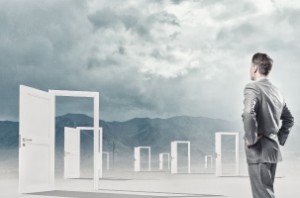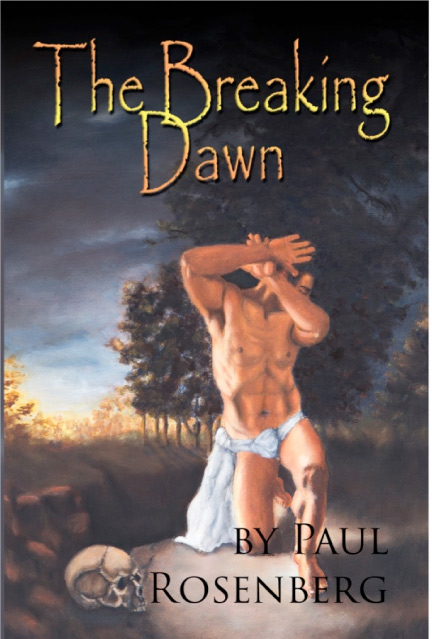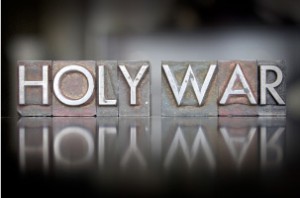Hustled Through Life

Most people, sad to say, are too rushed, frightened, and confused to think about what they really want out of life. They are hustled through school, forced into long-term decisions before they’re ready to face them, then held to those decisions by fear and shame. They choose from a limited set of options, and they know that change will be punished.
Eventually they get old and find time to think, but by then they can’t bear to question too deeply; that would jeopardize their self-worth, and they haven’t time to rebuild it.
For an intelligent, creative, and expansive species like ours, this rush to nowhere is among the greatest of evils. And yet it continues, mostly unquestioned. At no point in the usual Western life do we stop, take some serious time for ourselves, and think about the overall:
-
What’s life about anyway? What’s the point of what we do?
-
What’s the purpose of a career? Why should I care about it above everything else?
-
Why should I glorify the existing system? Why should I agree to support it?
-
Who paid for everything I learned in school?
-
Should I have a family? If so, why? If not, why not?
-
What do I think is fun? Does it really coincide with the beer ads on TV?
-
What’s the purpose of being like everyone else? Why am I so afraid to be different?
We don’t address such questions. Rather, we’re pushed past them. Even in a church or synagogue – places where larger questions are supposed to be addressed – the person in the pulpit wants us to become and/or remain a member of the congregation; their job depends upon it. There are true ministers and rabbis, but for most it’s all too easy to push their audience into what’s convenient.
As a result, we see little motivation in the modern West, save for the basest of motivators: things that match a line from the Bible that says, “Whose god is their belly.”
Mind you, I’m not against wealth, good food, or sex. I think those are fine things. They are not, however, the whole of life. We are much bigger than that. We ought not be limited to belly-level aspirations. But when we’re rushed, that’s all we’re able to see.
Status and Fear
The two big motivators we face in this rush through life – fear and status – are both negative.
Fear is a manipulation technology; people who make you afraid are hacking your mind. They want you to ignore reason and obey them fast. (I wish I could cover this in depth here, but we haven’t space. Please see issue #54 of my subscription newsletter.)
When we’re afraid, we make our worst choices. Put plainly, fear makes us stupid. But we encounter it on a daily basis… and it destroys us by inches.
Status is the compulsion to compare ourselves with others, and whether we’re looking for the ways we’re better than others or looking for our shortcomings, it is deeply destructive. It’s also irrational, but the advertising business would crash without it and advertisers currently own the collective eyeballs of humanity.
Fear and status are, in a broad sense, drugs, and if you had a choice between smoking pot every day or being on fear and status every day, I’d definitely recommend the pot.
Confusion
Let’s be clear on something: Nearly every adult in the West will agree that politicians are liars and thieves… and yet they obey them without question. Is there any possibility we’d do such things if we weren’t harried and confused?
When we are confused, we pass over our own minds and their deliberations. There’s an old joke: “Who are you gonna believe, me or your lyin’ eyes?” But that’s precisely what confusion does to us, and under the pressures of confusion and authority, most people will ignore their own eyes.
Such things do not happen to people who are calm and confident. But the existing hierarchies of the West couldn’t function with a calm and confident populace; their operations require people to be frightened, confused, and blindly chasing status.
As a Result…
As a result, most of us hurry through life, never knowing why. We live as others do, simply because that path is streamlined for us, exposing us to a minimal level of fear and shame. But that path does something else: It keeps us from experiencing ourselves.
Seldom has this problem been put more succinctly than in this quote from Albert Einstein:
Small is the number of them who see with their own eyes and feel with their own hearts.
Stop following the crowd. Turn your back on the popular script. Stop feeding at the same trough as everyone else. Break away and learn to see with your own eyes, to feel with your own heart.
Don’t conform. Let people criticize you. Decide for yourself what your life will be about. Make it matter.
* * * * *
If you’ve enjoyed Free-Man’s Perspective or A Lodging of Wayfaring Men, you’re going to love Paul Rosenberg’s new novel, The Breaking Dawn.
It begins with an attack that crashes the investment markets, brings down economic systems, and divides the world. One part is dominated by mass surveillance and massive data systems: clean cities and empty minds… where everything is assured and everything is ordered. The other part is abandoned, without services, with limited communications, and shoved 50 years behind the times… but where human minds are left to find their own bearings.
You may never look at life the same way again.
Get it now at Amazon ($18.95) or on Kindle: ($5.99)
* * * * *
Paul Rosenberg
[Editor’s Note: Paul Rosenberg is the outside-the-Matrix author of FreemansPerspective.com, a site dedicated to economic freedom, personal independence and privacy. He is also the author of The Great Calendar, a report that breaks down our complex world into an easy-to-understand model. Click here to get your free copy.]



